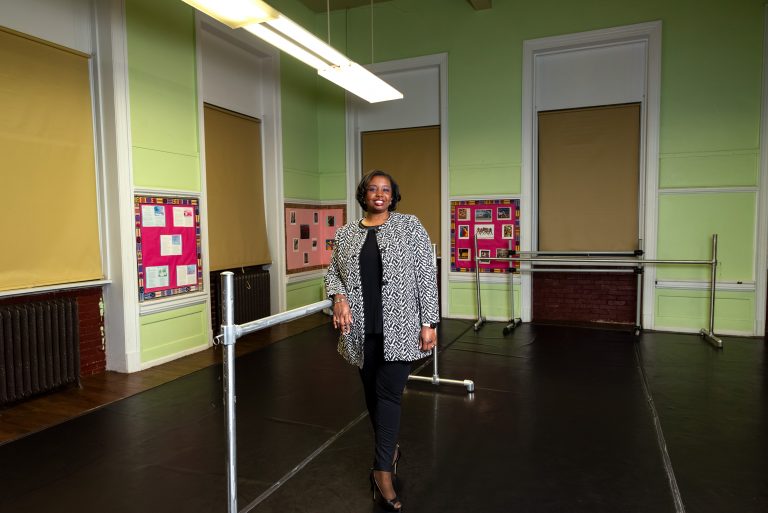Founder of Hill Dance Academy Theatre builds from her roots in the Hill District
By Ervin Dyer
Whenever Ayisha Morgan-Lee opens the doors on one of the old brick buildings at 2915 Webster Ave., in Pittsburgh’s Hill District, she’s never alone. She’s always surrounded by her ancestors.
Two years ago, Morgan-Lee purchased St. Benedict the Moor School. Before then, since 2010, she had been leasing the site, but now she wanted a permanent home to accommodate her growing Hill Dance Academy Theatre (HDAT). While the nuns, priest, and students have left the buildings, plenty of spirits remain, deeply connecting Morgan-Lee to this historic facility for Black Catholics.
Before it was St. Benedict, the campus was known as St. Richard. Her grandmother Carolyn Lee was the cook there, preparing the meals for the priest who served the community. Her dad, George Lee, was a student at St. Richard’s School. Whenever he was in detention, the nuns had him move desks and chairs into the attic. His daughter now owns that dusty attic and those old chairs.
Following in her father’s footsteps, Morgan-Lee also went to the school. By then, the parish had consolidated with several others and became St. Benedict the Moor, and she quickly began to set in place her own enduring legacy to the campus. In the summers, she volunteered in the office answering phones for the nuns and helping to decorate classrooms. When she was in graduate school, she returned to campus to work as a librarian and a substitute teacher.
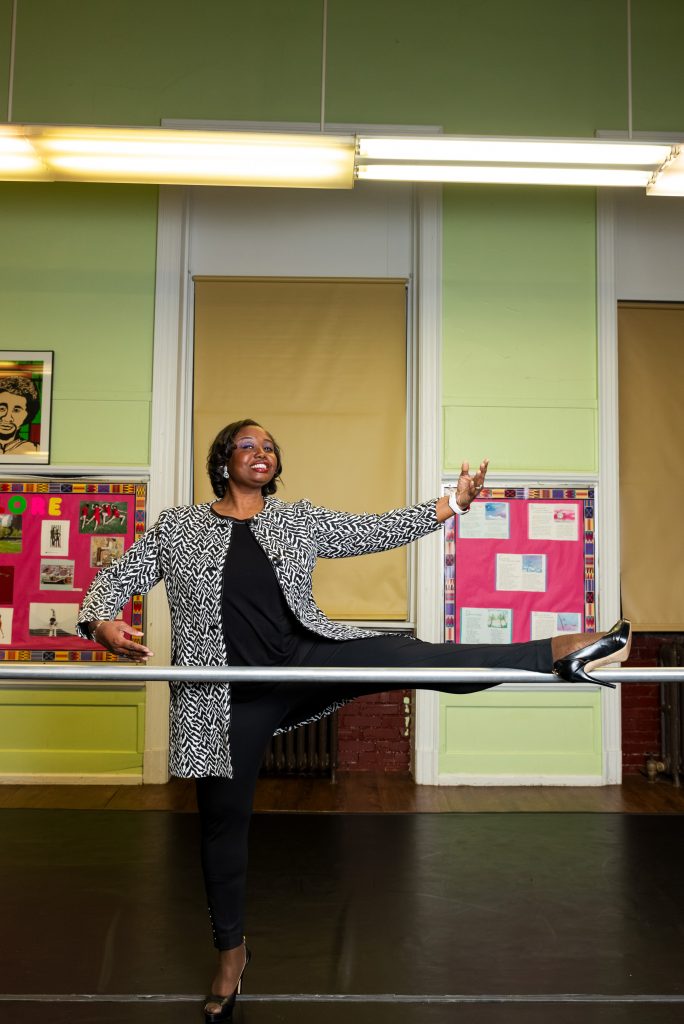
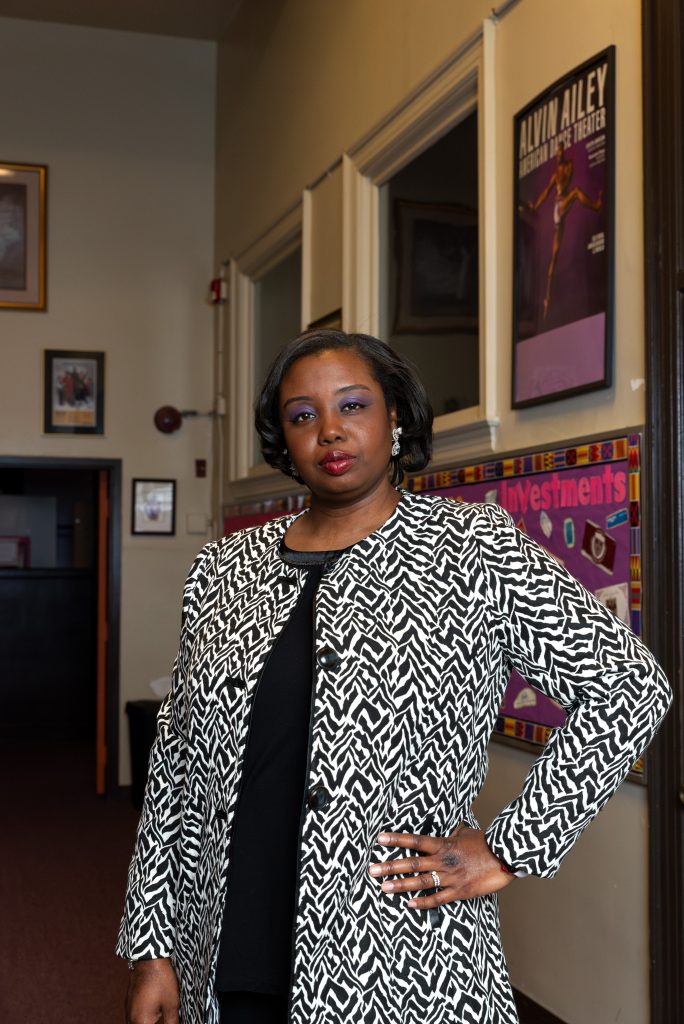
Morgan-Lee at the barre in one of the dance studios at the Morgan-Lee Arts Center (left) and (right) in front of an Alvin Ailey dance poster in the hallway HDAT. Photo Credit: Kitoko Chargois
When it came to establishing a home for HDAT, it was easy for Morgan-Lee to know where she wanted it to be. The architect who looked over the property assured her that the buildings had excellent bones and structure. More importantly, for Morgan-Lee, they also had heart.
There are so many hidden gems here that have been sustaining Black dance. So, it will be great for people to see the growth and impact of Pittsburgh’s Black dance communities.
Ayisha Morgan Lee, Founder of Hill Dance Academy Theatre
After years of using different venues, Morgan-Lee saw St. Benedict as “sacred ground,” as the perfect place to enlarge her vision and create a vibrant dance legacy in Pittsburgh.
Once she signed the papers, she set about memorializing her family’s connection to the campus. The main building, a former school, is now the Morgan-Lee Arts Centre. The 11-bedroom former convent, where she once had lunch and supper with the nuns, is now the Juanita and Lloyd Morgan Residency Retreat Centre, a place to house visiting artists. It is named for her mother’s parents, whose family home was always a welcoming place. The office building, where her grandmother cooked, is named the Carolyn and Harold Lee Administrative Centre after her father’s parents.
As Morgan-Lee settles in, she envisions HDAT as an engine of opportunity, a Black Wall Street for the Hill District. She has hired African American vendors to help maintain the grounds and the facilities. The first floor of the Morgan-Lee Arts Centre supports Black artist entrepreneurs. She has set up a Black artists’ colony that now houses a multi-media photographer/videographer, an Afro-Caribbean costume-textile creator, an award-winning quilt-maker, a self-care artist, and more.
“I’m really excited,” Morgan-Lee says, “about helping these businesses and entrepreneurs that we’ve had in our HDAT family for years. They have a space to keep, grow, and sustain their artistry. That is absolutely awesome.”
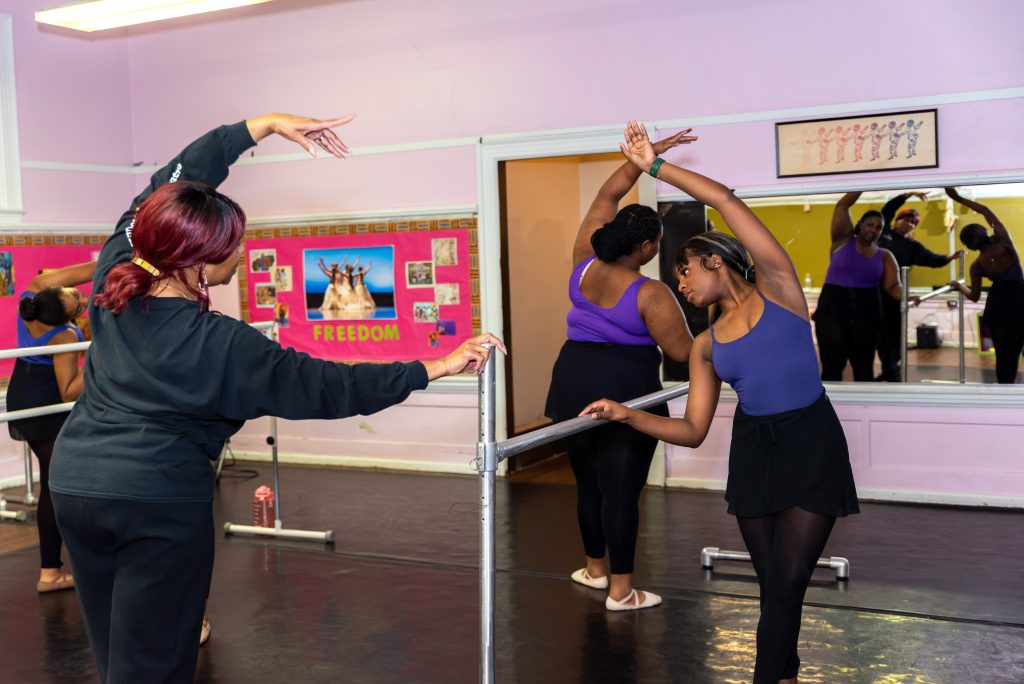
The second floor of the Morgan-Lee Arts Centre houses Hill Dance Academy Theatre’s dance studios. In this space, teaching artists create and build aspirations and visions of students reaching for careers in dance. The building also provides an auditorium space for community rentals for family gatherings and social activities.
More and more, Morgan-Lee is not just looking back, she’s also looking forward. She is using 2024 to prepare for a year of “firsts” in 2025. It kicks off in early 2025 when HDAT and Pittsburgh will host the International Association of Blacks in Dance (IABD) from January 20-26, 2025. Morgan-Lee now serves as board chair of IABD. At 16, she went to her first IABD conference in Denver, Colorado. The experience inspired her to become a professional dancer and dance educator. Now, she’s bringing what she calls “the Super Bowl of dance” to her hometown. She’s expecting about 1,300 participants from major Black dance companies from around the globe to converge on the Steel City for the conference and festival. The IABD visit is even more special as it takes place during the year that HDAT turns 20.
We have a lot of young people in Pittsburgh who want a dance career, and one way to keep them in Pittsburgh is to provide this kind of opportunity.
Ayisha Morgan Lee, Founder of Hill Dance Academy Theatre
When the conference lands, Morgan-Lee thinks it will elevate Pittsburgh’s rich dance history, which includes groups such as the Shona Sharif African Dance and Drum Ensemble, Bob Johnson’s Pittsburgh Black Dance Theater Ensemble, Staycee Pearl, Legacy Arts and others.

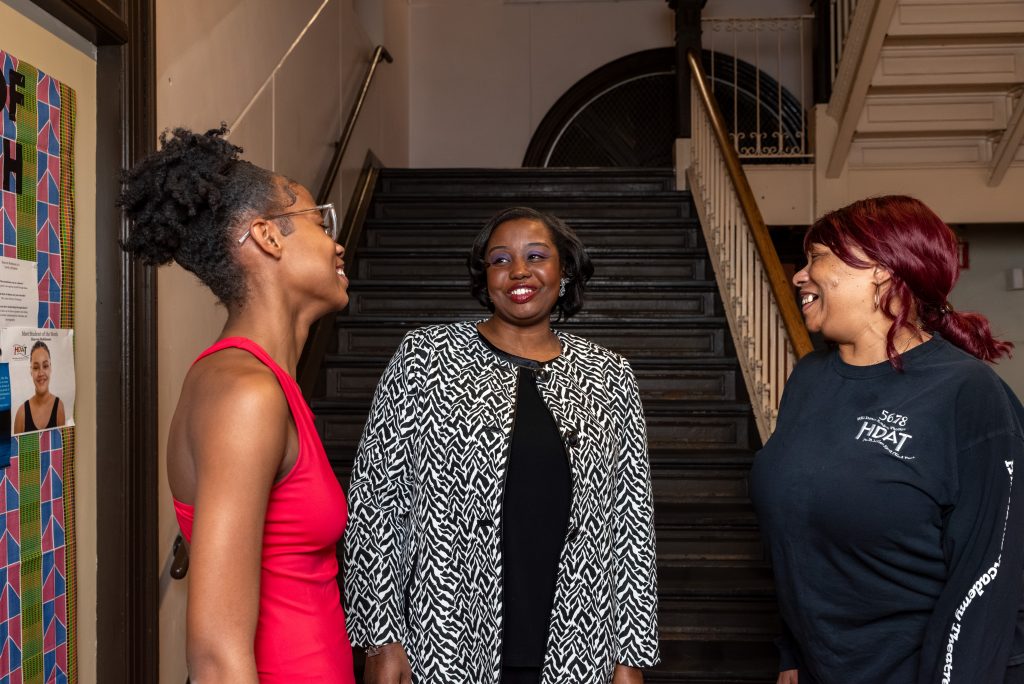
Morgan-Lee at HDAT in her office spending time with her daughter, and with long-time mentor and HDAT faculty, Leslie Anderson Braswell (right) and dancer Nairee Hunter (left) before class. Photo Credit: Kitoko Chargois
“There are so many hidden gems here that have been sustaining Black dance and I think that gets overlooked,” Morgan-Lee says. “So, it will be great for people to see the growth and impact of Pittsburgh’s Black dance communities and for HDAT to honor the foundation and legacy of Black dance and know and recognize the shoulders on which we now stand.” She also believes that the conference can send a message that Pittsburgh needs to do more to nurture, build, and establish a professional major Black dance company.
“It would be wonderful to see that happen, because we have a lot of young people in Pittsburgh who want a dance career, and I think one way to keep them in Pittsburgh is to provide this kind of opportunity,” she says.
Since 2025 will be a milestone year, the special events will also include:
• In April, as part of HDAT’s spring dance concert, Brooklyn-based choreographer Ronald K Brown (EVIDENCE/A Dance Company) will arrive at downtown’s August Wilson African American Cultural Center to choreograph a work for not only HDAT students, faculty and alums but also for the community;
• In July, HDAT will hold an old-fashioned block party to celebrate its anniversary and have an official naming of its facilities;
• In October, it will hold a gala honoring Youth Champions, unsung artists in music, dance, theater, and visual arts and community leaders;
• In December, it will stage its premier holiday musical written by Hill District artist Kim El, with original music and lyrics by James Johnson III and Carolyn Perteete.
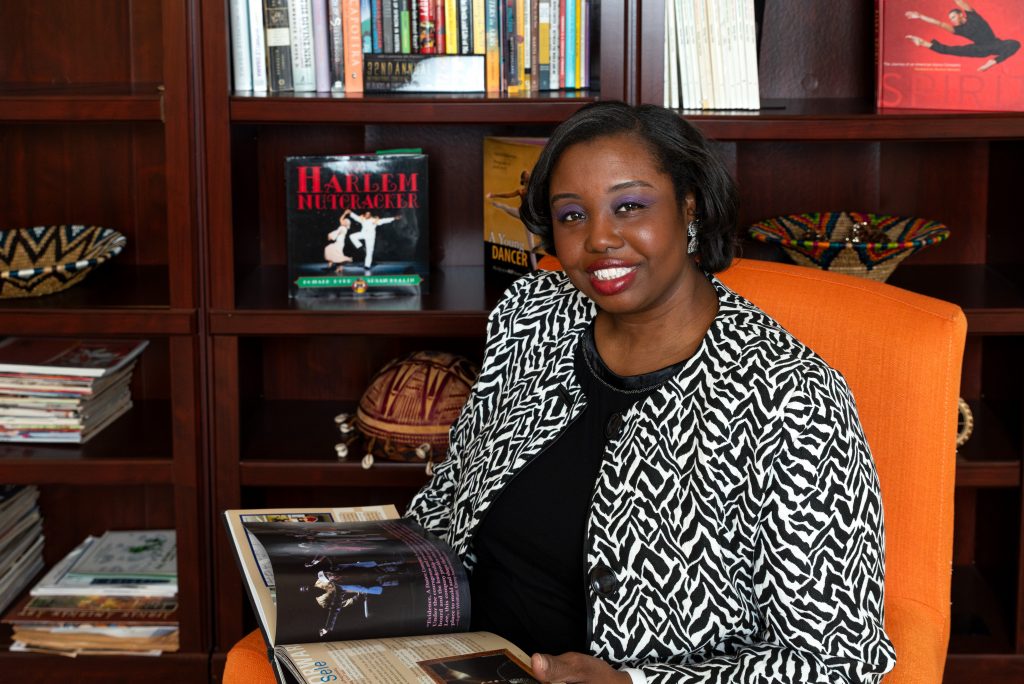
It’s a bold agenda. Morgan-Lee says there are times when the work gets challenging, and she has to step back and breathe.
“But then I look around at what we have and what we have accomplished, and I’m pleased to say that we own this space.”
She purposely uses “we” to not only recognize her personal legacy to the campus but to also acknowledge its unique history for Black Catholics and how her preservation helps to tell the broader story of a Black community’s legacy that she, her father and her grandmother are a part of.
She concludes, “It is an absolute blessing to be able to keep such rich culture and traditions in our community and also in our family.”
Ervin Dyer is a writer who focuses his storytelling on Africana life and culture.


